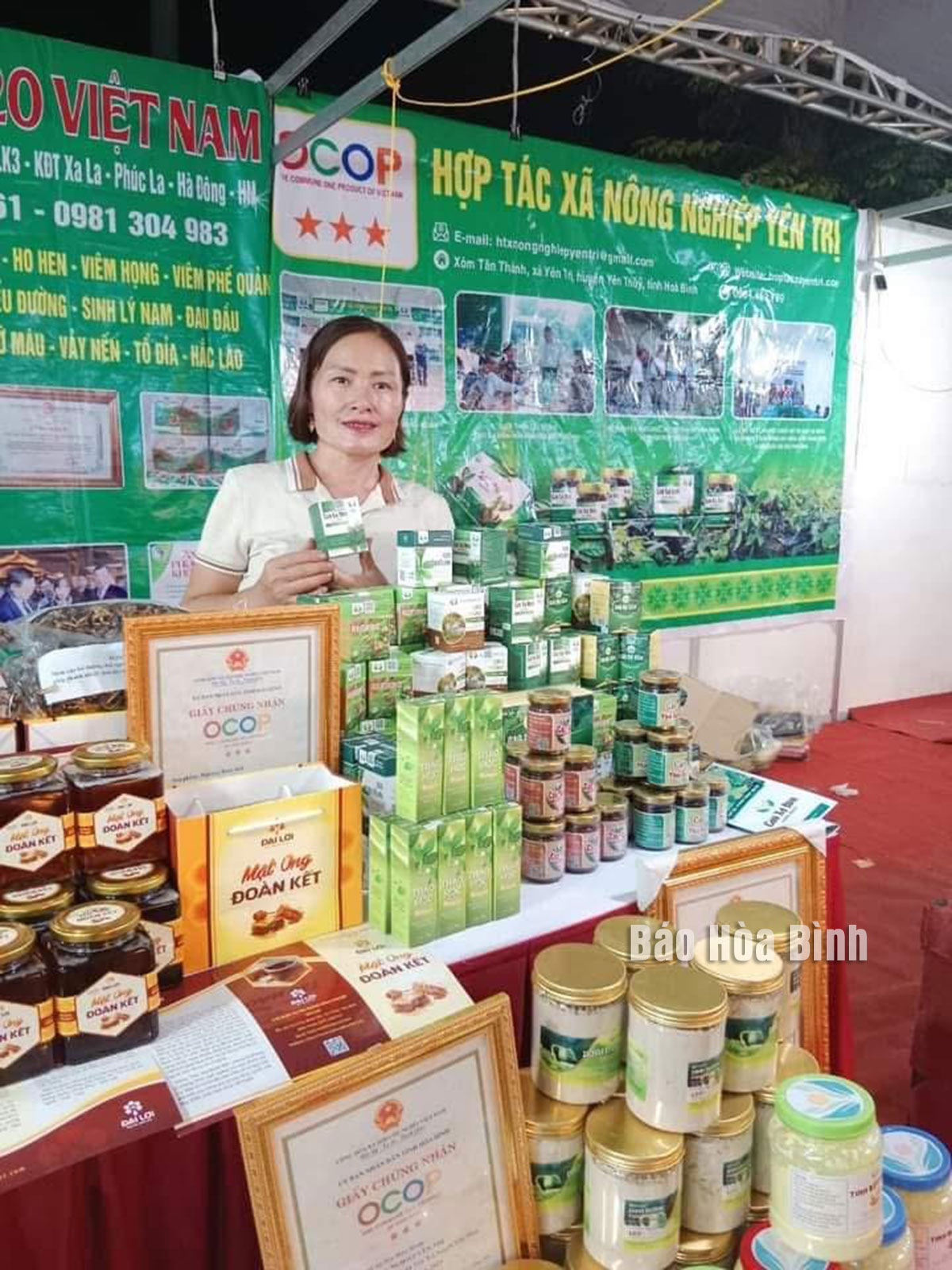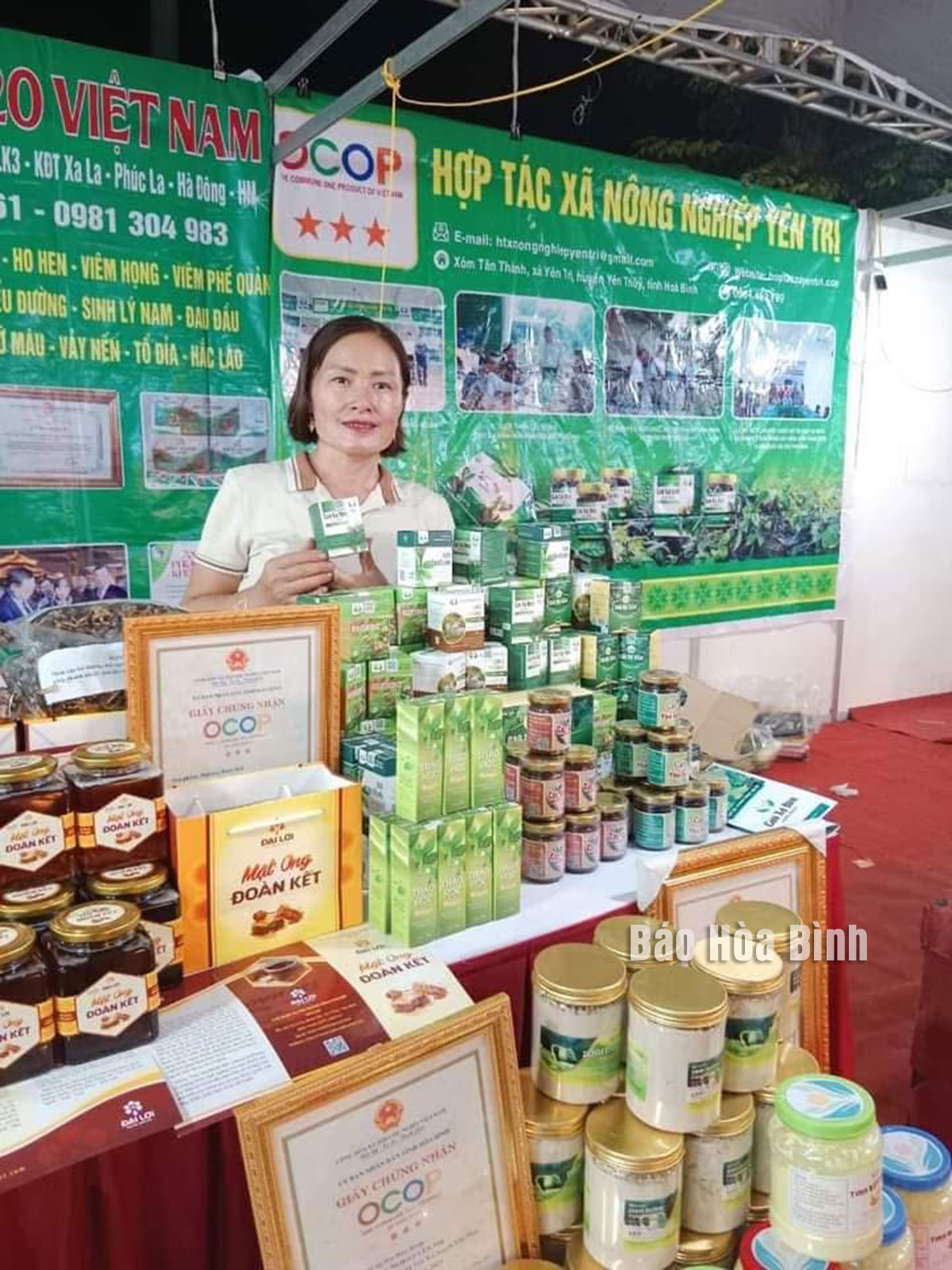



Herbal products from the Yen Tri Agricultural Cooperative displayed at Trinh Cong Son walking street, Tay Ho, Hanoi, receive a warm welcome from consumers.
Initially, only a few products from Yen Thuy were registered under OCOP, primarily tea, honey, mushroom, and 'xa den' leaves staples in the daily life of the local Muong people.
With support from the administration, cooperatives, and national programmes, Yen Thuy had 23 certified OCOP products by the end of 2024. Among them, four achieved a four-star rating, and 19 received three-star rating. While modest compared to major agricultural regions, this marked a significant milestone for a mountainous district facing natural disadvantages.
If one product symbolises Yen Thuy's OCOP journey, it is xa den leaves. Once a wild plant used in traditional remedies, xa den is now a certified three-star OCOP product under the Yen Tri Agricultural Cooperative.
The transformation began with a field survey in Yen Tri commune, where agricultural cadres discovered that local xa den had exceptionally high flavonoid content. Unlocking its full value required more than traditional harvesting methods.
A detailed 300-page development plan was created, leading to the November 2024 approval of the "Development of OCOP Herbal Products Linked to Local Raw Material Areas in Yen Tri Commune" project.
With a total investment of 25.167 billion VND (977,000 USD), including 11.5 billion VND from central funds, 9.6 billion VND from the provincial and district budgets, and the remainder from cooperatives and farmers, the project established structured cultivation areas, trained farmers in Good Agricultural and Collection Practices (GACP-WHO), and integrated local products into the national herbal industry.
Beyond xa den, other notable products include red reishi mushrooms, herbal tea, wild honey, and lemongrass essential oil, all leveraging the district's limestone-mountain ecosystem. Improved packaging, QR code traceability, and online sales via platforms like Postmart and Voso have expanded market reach. These efforts contributed to Yen Thuy's economic growth. In 2024, per capita income rose to 62 million VND (up 10 million VND from 2023), while the poverty rate fell below 4%.
Bui Huyen, Vice Chairman of the Yen Thuy District People's Committee, said that for Yen Thuy, OCOP is not just about an economic story. It revives local heritage and instills pride in local people about their native products. It’s when a bundle of green tea is carefully wrapped in handmade paper, a jar of wild honey is labeled with a local brand, or a bottle of lemongrass essential oil is packaged with a heartfelt note. Once unknown in village markets, these products now lead the way for a modern countryside.
No one expected Yen Thuy to become a major OCOP hub, but transformation here is not driven by calculations, it is fueled by hardworking hands and genuine dreams. This enduring motivation ensures that each product carries the essence of the land and the spirit of the village.